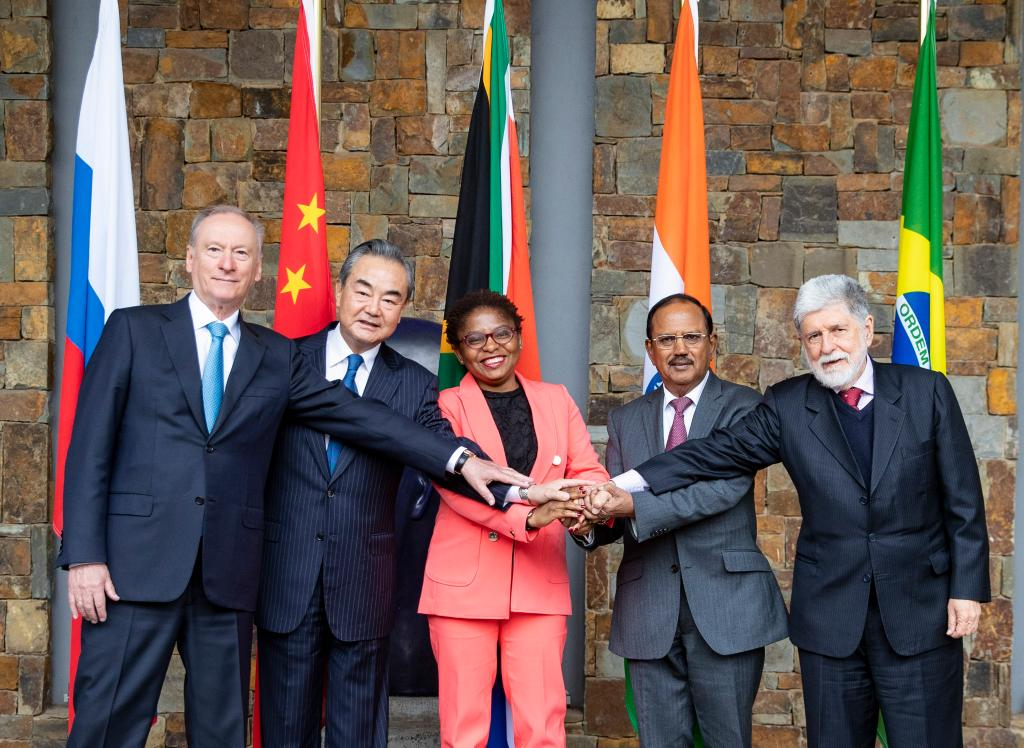Wang Yi, a member of the Political Bureau of the Communist Party of China (CPC) Central Committee, on Tuesday called for joint efforts to address global security challenges.
He made the remarks at the 13th Meeting of BRICS National Security Advisers and High Representatives on National Security in Johannesburg, South Africa. BRICS is an acronym for five emerging economies — Brazil, Russia, India, China and South Africa.
After more than 10 years of development, the BRICS countries have become an important platform for emerging markets and developing countries seeking strength through unity, said Wang, also director of the Office of the CPC Central Commission for Foreign Affairs.
The BRICS countries have advanced cooperation with its three main drivers, namely, political and security cooperation, economic cooperation and people-to-people exchanges, and have enhanced the voices and influence of emerging markets and developing countries, Wang said.
He called for efforts to follow the right direction in the future development of the BRICS countries, further strengthen political mutual trust and strategic coordination, and continue to provide international public goods that meet the requirements of the times.
To cope with security risks facing the world today, Wang called for adhering to mutual respect, abiding by the purposes and principles of the United Nations (UN) Charter, respecting each other’s legitimate security concerns, and respecting the rights of all countries to choose their political systems and development paths.
Wang urged to uphold multilateralism, preserve the multilateral system with the UN at its core and resist unilateralism and hegemonic practice.
Efforts should be made to resolve disputes and differences through dialogue and consultation, while acts of “decoupling” and “double standards” should be opposed, Wang said. He also underlined common security, highlighted the spirit of win-win cooperation, and opposed zero-sum thinking and the Cold War mentality.
As a grouping of emerging market and developing countries, “Global South” countries have an important mission of resisting external intervention and safeguarding political security, Wang said, calling for efforts to continuously deepen South-South cooperation, jointly safeguard national security and stability, in a bid to build an equitable and orderly multipolar world.
China is willing to work with its BRICS partners to carry out more practical cooperation in addressing international security challenges, Wang said.
The meeting was also attended by Khumbudzo Ntshavheni, minister in the Presidency of South Africa, Celso Luiz Nunes Amorim, chief adviser of the Presidency of Brazil, Nikolai Patrushev, secretary of the Security Council of Russia, and National Security Adviser of India Ajit Doval.
The parties agreed to carry forward the BRICS spirit, support multilateralism, oppose unilateral sanctions and jointly cope with global challenges, including terrorism, extremism and cross-border crime.
The parties also agreed to strengthen dialogue, consultation, solidarity and cooperation, support South Africa in hosting a successful BRICS summit, and promote the continuous growth of BRICS cooperation.
Shayne Heffernan









